Search
Search Results
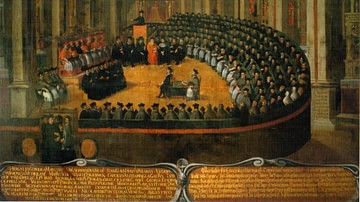
Definition
Counter-Reformation
The Counter-Reformation (also known as the Catholic Reformation, 1545 to c. 1700) was the Catholic Church's response to the Protestant Reformation (1517-1648). It is usually dated from the Council of Trent in 1545 to the end of the Great...
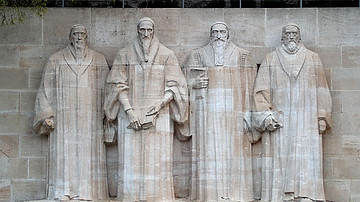
Article
Ten Protestant Reformation Facts You Need to Know
The Protestant Reformation (1517-1648) was one of the most significant cultural, political, and religious events in the history of Europe and helped shape the modern world. It was a complex event spanning over 100 years, which radically changed...

Definition
Protestant Reformation
The Protestant Reformation (1517-1648) refers to the widespread religious, cultural, and social upheaval of 16th-century Europe that broke the hold of the medieval Church, allowing for the development of personal interpretations of the Christian...

Article
The Printing Press & the Protestant Reformation
The printing press, credited to the German inventor and printer Johannes Gutenberg (l. c. 1398-1468) in the 1450s, became the single most important factor in the success of the Protestant Reformation by providing the means for widespread...
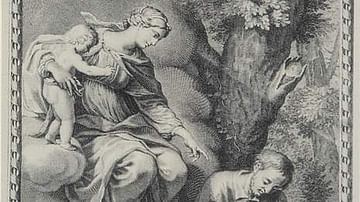
Article
Loyola's Spiritual Exercises
The Spiritual Exercises of Ignatius Loyola (1548) is a manual of disciplines formulated by Ignatius Loyola (l. 1491-1556) to prepare one spiritually for Christian service. They were initially developed between 1522-1524 by Loyola for himself...
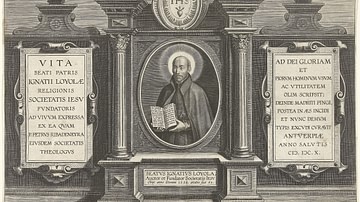
Article
Autobiography of Saint Ignatius of Loyola
The Autobiography of Saint Ignatius is the story of the life of Ignatius of Loyola (l. 1491-1556) dictated by him to the Jesuit priest Father Louis Gonzalez between 1553-1555, shortly before Loyola's death in 1556. It is an account of his...
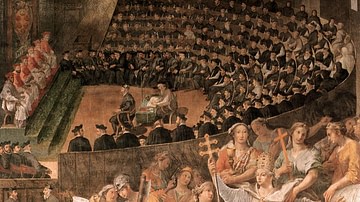
Definition
Council of Trent
The Council of Trent (1545-1563) was a meeting of Catholic clerics convened by Pope Paul III (served 1534-1549) in response to the Protestant Reformation. In three separate sessions, the council reaffirmed the authority of the Catholic Church...
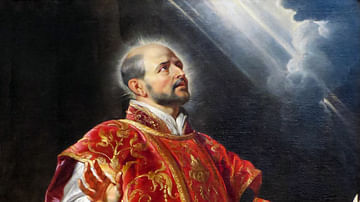
Definition
Ignatius of Loyola
Ignatius of Loyola (l. 1491-1556) was a Basque soldier who became a Catholic priest and theologian after a mystical experience convinced him he was called to the service of Christ. He founded the Society of Jesus (Jesuits) to defend the Church...

Definition
Marie Dentière
Marie Dentière (l. c. 1495-1561) was a French theologian, writer, and street preacher who advanced the cause of the Protestant Reformation in Geneva, Switzerland. Her written works were controversial primarily because she was a woman and...
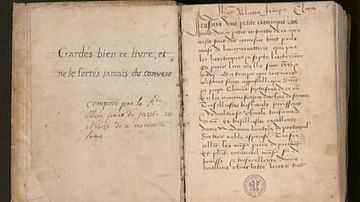
Article
Jeanne de Jussie's Short Chronicle
Jeanne de Jussie's Short Chronicle (1535) is an eyewitness account by the nun Jeanne de Jussie (l. 1503-1561) relating how the Protestant Reformation in Geneva, Switzerland, impacted the lives of the sisters of her convent of Poor Clares...